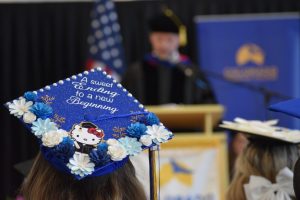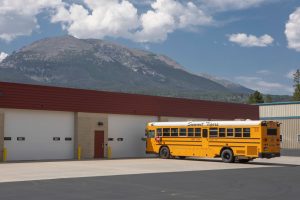New Colorado law will make it easier for teachers to get licensed amid a statewide educator shortage
Educator shortages on the Western Slope and rural districts continue to outpace shortages in urban districts.

Taylor Cramer/Post Independent
A new Colorado law is removing barriers for aspiring educators to enter the field as school districts across the state gear up for a new academic year.
The bipartisan law — Senate Bill 25-154 — was signed into law by Gov. Jared Polis on May 9 and is one of many that took effect on Wednesday.
The Access to Educator Pathways law makes it easier for teachers to get certified in high-need areas like early childhood education, special education, bilingual education and secondary math and science — many of which are still looking to fill vacancies just days out from the start of the school year.
“Many districts across Colorado are still actively trying to fill educator vacancies,” said Margarita Tovar, chief talent officer for the Colorado Department of Education. “We always see that need extend throughout the beginning of the school year.”
School districts in Colorado have grappled with educator shortages for several years. Of the almost 2,800 teaching-related positions that were still left to hire by the start of the 2024-25 school year, the majority were filled by long-term substitutes, retired teachers and alternative candidates. Nearly 600 positions remained unfilled, including special service providers and paraprofessionals, and three schools in the state were left without a principal.
While these shortages are smaller than what Colorado schools saw during the 2023-24 school year, educator shortages on the Western Slope and rural districts continue to outpace shortages in urban districts.
Students and working professionals looking to become licensed in teaching can face numerous roadblocks, including time constraints, testing costs, and accessibility to classes and resources.
The new law reduces the number of tests that aspiring educators have to take in order to become certified, which Tovar said will help many education students and working professionals feel less cost-burdened by mounting testing fees and achieve the necessary requirements in a shorter timeline.
“Some of our individual subtests can range between $64 to $160,” Tovar said. “Elementary teachers had to take five subtests that added up quickly, in addition to the licensing fee, which is the state requirement. So yes, certainly this reduces the barrier.”
Retaining educators and getting new teachers into classrooms
The law not only offers more flexible routes for current and future educators to meet critical workforce needs, but it also builds on existing initiatives to get teachers into classrooms.
“We believe that Senate Bill 154 is important to our educator recruitment retention efforts, but it also complements, specifically, the Educator Recruitment and Retention program,” Tovar said.
The Educator Recruitment and Retention, created through Senate Bill 21-285 and currently accepting applications for the 2025-26 academic year, offers up to $10,000 in financial assistance per applicant to help aspiring educators cover the cost of educator preparation program fees. The program is primarily targeted at students pursuing teaching careers in shortage areas and who commit to serving in those positions for at least three years.
More than 2,000 future teachers have already benefited from the program since its launch in 2022, according to Colorado Education Commissioner Susana Córdova.
“While Senate Bill 154 works more on reducing testing barriers and making the pathway to licensure less expensive, we see that together, these initiatives address both the access and affordability,” Tovar said, “which are two of the most frequently cited barriers by candidates, especially first-generation college students, multilingual educators and career changers.”
“These two programs are not just for new teachers — this also helps anyone who is interested in experiencing a career change, or maybe those teachers that already have a credential but want to seek an additional endorsement,” Tovar added.
Despite its novelty, school districts have already begun reaping the benefits of the new law.
“A lot of the benefits come from the advocacy, the information, the awareness that this bill has brought to light around some of the barriers that we hear frequently as it relates to standardized testing requirements for educators who are seeking a professional license,” Tovar said. “This bill, by eliminating the science and social studies subtest for elementary licensure, reduces time and financial burdens that can often discourage talented individuals from completing the licensure process.”
Tovar said the department is “doing everything possible” to ensure that the state’s licensure platforms are prepared to take on applications following the change in requirements, and that those preparations will be fully finalized by the fall.
The department also has new support from its standardized testing company in the form of content review modules, which will allow candidates who fall below a passing score to complete the modules they need rather than retaking the exam. This will allow more educators to move forward in their certification process without paying additional fees.
“We see that these changes are already helping future license holders, and they will continue helping with strengthening the pipeline for future years,” Tovar said. “We believe they’re a step toward a more accessible licensure process.”

Support Local Journalism

Support Local Journalism
As a Summit Daily News reader, you make our work possible.
Summit Daily is embarking on a multiyear project to digitize its archives going back to 1989 and make them available to the public in partnership with the Colorado Historic Newspapers Collection. The full project is expected to cost about $165,000. All donations made in 2023 will go directly toward this project.
Every contribution, no matter the size, will make a difference.










